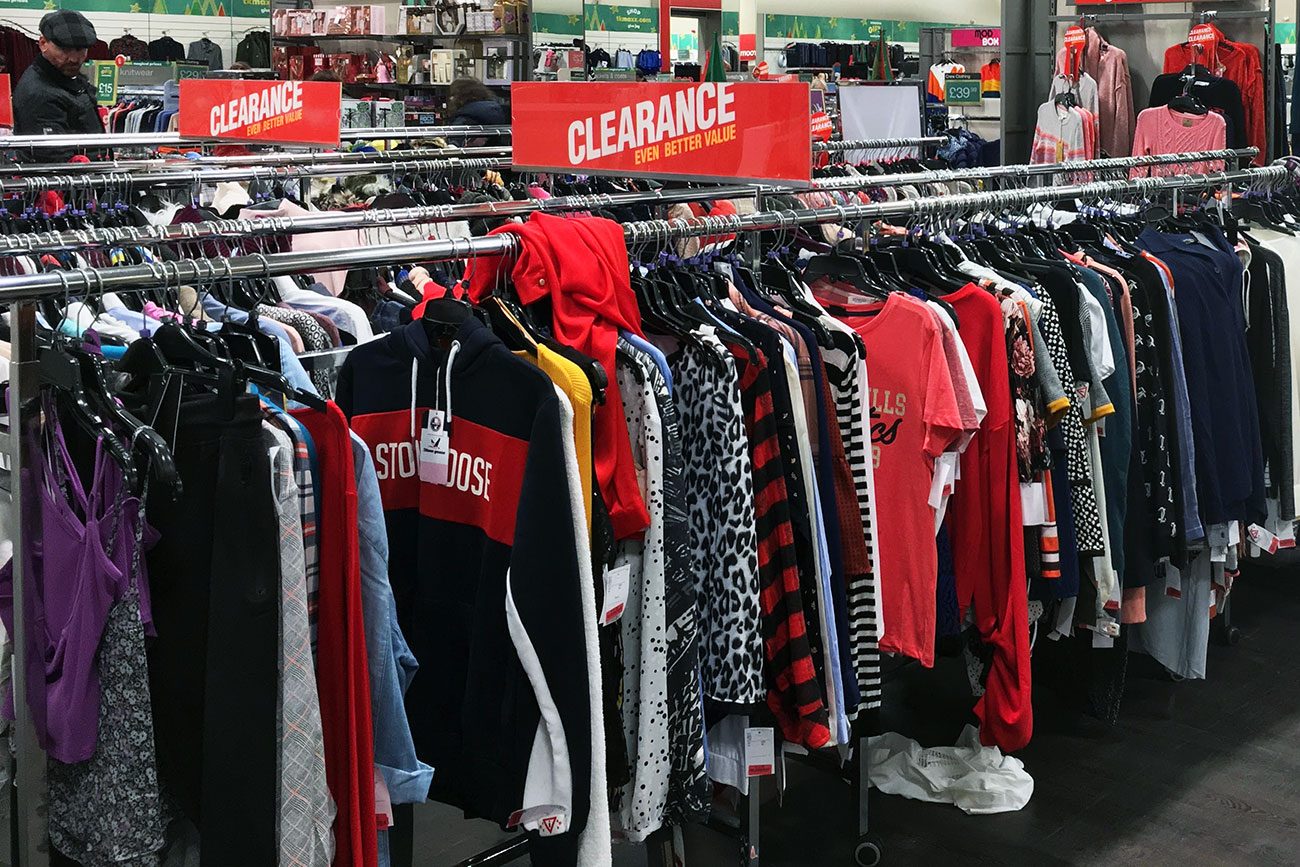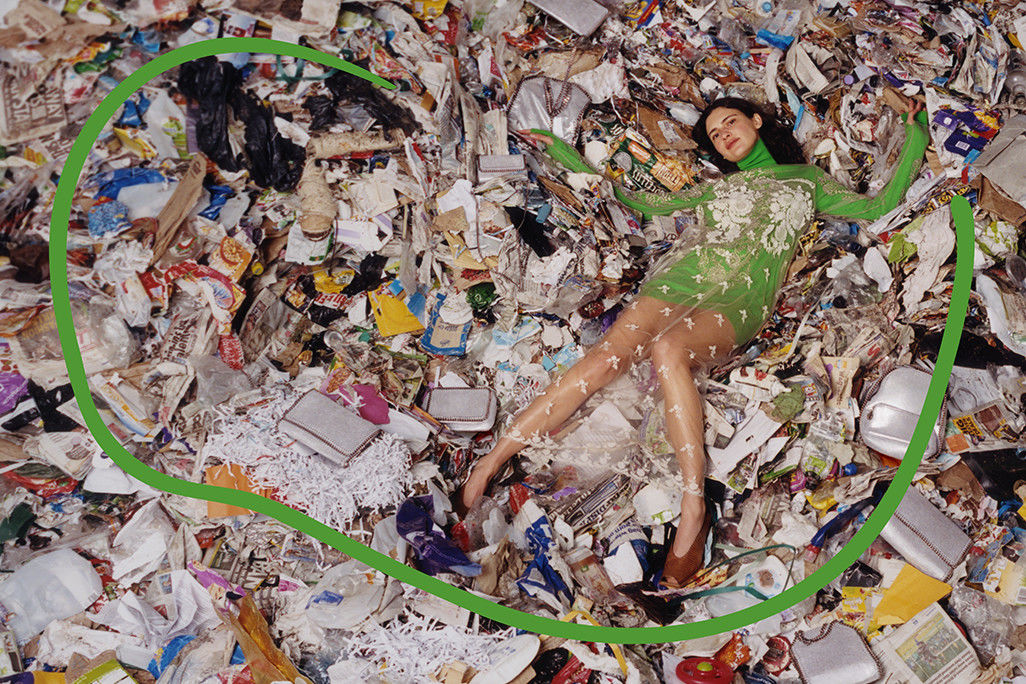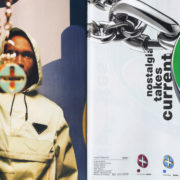Fighting Fast Fashion: Where To Buy New

We’re in the era of fast fashion. Clothes are treated as throwaway items, worn for one night out, one instagram picture, before being tossed aside. We’re tricked into buying new items all the time to keep up with trends that die out in the blink of an eye. Brands have responded to, and encouraged, this vast overconsumption to keep money coming in.
Stores add new stock each week to satisfy the constant demand for more. This often leads to over-estimating how much stock one store truly needs and retailers are left with many unsold items; maybe the item wasn’t as popular as once thought, or the trend dies quicker than expected, or there’s a global pandemic that forces stores to close.
The fashion industry has a problem with admitting that it overproduces. But there’s no argument it does, and at a vast scale. Retailers – both luxury and mass-market – tend to over-order because it’s cheaper to double volumes with a factory and deal with excess later. Brands over-order with the expectation that only half an order will sell at full price while the rest is discounted in sales. But what happens to the leftovers?
Many brands donate unsold stock to charity. Primark for example says that since 2010, it has donated all unsold products to Newlife, a charity for disabled and terminally-ill children. Marks & Spencer also say they never send clothes to landfill or incinerate unsold stock, instead donating to charity or recycling organisations – primarily Oxfam.
Carrie Ann Moran, coordinator for Fashion Revolution & sustainability manager for a charity retailer, states that donating unsold clothes to charity is the most sustainable way for the highsteet to handle excess stock;
“It’s a circular solution – waste becomes a resource for someone else in the charity sector….you have a big CSR (corporate social responsibility) tick and a big environmental remit tick and it looks good for you. It’s an all-around win.”
But not all brands see donations as the way forward. In 2018, Burberry reported they burnt £28.6m of unsold merchandise. After an unsurprising flurry of negative press, the brand announced it would ban the practice altogether. Their unsold merchandise is now sent to their own outlet stores which allows the brand to control the price of their own product while also upholding precious brand integrity. Both Nike and Urban Outfitters have reportedly ruined products they couldn’t convince people to buy in order to preserve this so-called brand exclusivity and prevent discounted sales.
Exclusivity is a major factor ‘justifiying’ burning unwanted goods. Exclusivity is something that draws high-end customers into a purchase, ruining that by ethically ‘disposing’ of unsold stock isn’t worth it in the eyes of luxury. But exclusivity is no fun for those who cannot afford to participate. Something more fun to the average-income fashion lover is being complimented on an outfit and proudly stating how much of a bargain it was.
And, where better to get a bargain than TK MAXX?

TK MAXX fill their stores with excess stock bought from brands or retailers who couldn’t sell it – saving unwanted items from going to landfill or being turned to smoke. They purchase en mass from businesses who have ordered too much stock and have unsold ‘out-of-season’ items left in warehouses. This mass purchasing of unwanted items means TK MAXX gets a deal price and can pass savings onto their customers. By making their stores a ‘no frills’ affair, the prices are further kept low and everyone get’s a deal.
As well as being customer friendly and offering affordable, quality clothing, TK MAXX runs under an ethical sourcing policy which has a tonne of environmental benefits;
- Waste from stores and operations is recycled, meaning 91% of their waste is diverted from landfill – they’re working on the rest.
- UK stores have recycled over 1.3 million bags of clothing through their ‘Give Up Clothes for Good’ campaign – equating to 6,830 tonnes of clothing or 150,000 tonnes of saved carbon emissions.
- TK MAXX is dedicated to reducing single-use plastic waste through three initiative projects; The Ocean Clean Up – cleaning up half the Pacific garbage patch by 2025, The Plastic Collective – turning plastic waste into income for Pacific island communities, and in the UK – environmental and clean-up schemes in local UK communities.
- All TK MAXX stores and processing centres use LED lighting, reducing energy consumption in each store by 42% and in processing centres by 45%.
- Since 2004, TK MAXX has donated £1million to the Woodland Trust, enabling over 70,000 trees to be planted across Wales – offsetting 18,210 tonnes of CO2.

It’s more than environmental pledges that make a company sustainable – it also means treating workers fairly. Vendors that TK MAXX source from must sign a Vendor Code Of Conduct committing them to; no child or forced labour, protection of employee rights on wages and working hours, no harassment, abuse or discrimination, adhering to health and safety regulations in the workplace, and complying with all environmental laws and regulations.
The brand is also one of the largest partners working with The Prince’s Trust ‘Get Into Retail’ programme – helping over 1000 young people through the project, with 70% going on to work within TK MAXX. Unlike a lot of high street brands, TK MAXX is extremely transparent about the inner workings of their company – sharing detailed information on company diversity, their gender pay gap, their sourcing habits, and their environmental impact.
On top of this, TK MAXX runs a Sustainable Trade Progrmme in Uganda and, as of 2011, have enabled over 4000 parents to increase their incomes and afford to send their children to school. With the aim to ensure children complete primary education, locals are supported in the production and sale of coffee, cocoa, cotton and crafts which are sold in TK MAXX stores and have even won awards.

After all the beautiful eco and humanitary friendly facts, what’s so fun about TK MAXX is removing that exclusivity barrier and inviting people of all income brackets to enjoy clothes. Arguably, TK MAXX is a huge step forward on the path to affordable and sustainable fashion.
Those moving away from buying fast fashion can buy from TK MAXX with the knowledge of getting a bargain while also saving the item from landfill or incineration. We know the employees are treated well and that the company is dedicated to reducing fashion’s environmental impact. This way yes, fast fashion companies do make profit from the mass sale, but it’s less than RRP and hopefully that prompts them to order less and fix the over production habit of the fashion industry.
At the end of the day, to be sustainable we need to consume less. If brands can make goods that are made to last, are not very trend-driven and are more specific to human needs, we won’t have this vast amount of unsold goods. But while the fast fashion model continues to be driven by overconsumption we will have the burden of unsold merchandise – and until then, TK MAXX seems to be a great option in the fight.
Discover more from GUAP’s Fashion section here




![ZINO VINCI’S ‘FILTHY & DISGUSTING’EP BRINGS YOU TO THE CORE OF THE ARTIST [@ZinoVinci]](https://guap.co/wp-content/uploads/2023/10/Zino-4.jpg)



